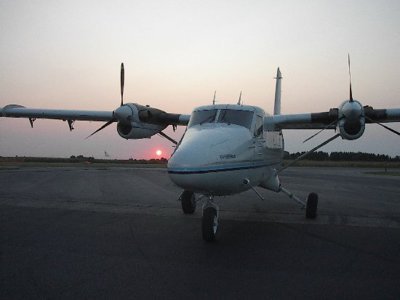Recommended Posts
QuoteQuoteAgree with all of that, but would add that, at least in my opinion, skydiving planes are usually older and have a higher probability of not being maintained properly. Although I could be very wrong on both of those points; especially the second.
Any aviation enthusiasts care to weigh in on that?
IIRC, diverdriver (Chris Schindler) maintains that jump aircraft crash at about twice the frequency of General Aviation aircraft. Not sure as to causes - hopefully he'll pop in here and enlighten us as to his thinking.
I've been working on a spread sheet and graphs periodicly for just such a comparrison. It's not done yet (to where I want to post it) but I hope to have it updated and posted by the end of this year. Statistics can be cut in many ways. I feel I have tried to compare things apples to apples. I do believe we have accidents at twice the General Aviation accident rate (12.0/100,000 hours flown vs 6/100,000 hours flown). This discussion has been done many times before and I don't have the time (at the moment) to search it out. Give me a little time and I'll see if I can find the post here on DZ.com.
Suffice it to say we repeat much the same accidents over and over.
The accident data base can be found here: http://www.diverdriver.com/Accidents/accidents.htm
Chris Schindler
www.diverdriver.com
ATP/D-19012
FB #4125
www.diverdriver.com
ATP/D-19012
FB #4125
kallend 1,623
QuoteQuoteQuoteAgree with all of that, but would add that, at least in my opinion, skydiving planes are usually older and have a higher probability of not being maintained properly. Although I could be very wrong on both of those points; especially the second.
Any aviation enthusiasts care to weigh in on that?
I don't think airframe or engine failures are the major cause (as opposed to, say, fuel mismanagement or other pilot errors).
I wonder, for example, how many jump plane pilots maintain instrument currency, which would be important in a ferry flight over unpopulated areas at night....
The only sure way to survive a canopy collision is not to have one.
JohnMitchell 14
Very good point. As jumpers, we ask so many questions of our riggers, our packers, our gear manufacturers. Do you ever think to question your pilots? Maybe all jumpers should involve themselves in that facet of skydiving safety. I've asked at least one jump pilot to cease flying in a manner I felt was unsafe. We're in this thing together.






IIRC, diverdriver (Chris Schindler) maintains that jump aircraft crash at about twice the frequency of General Aviation aircraft. Not sure as to causes - hopefully he'll pop in here and enlighten us as to his thinking.
Share this post
Link to post
Share on other sites